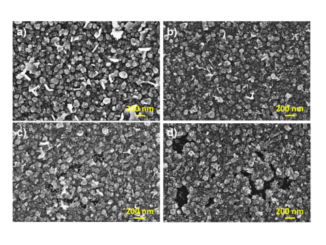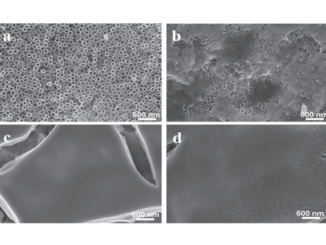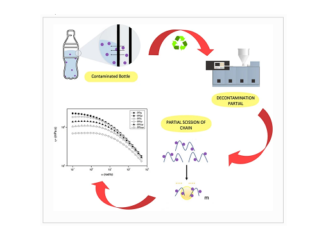
PAAm/CMC/nanoclay nanocomposite hydrogel: understanding the influence of initiators on the chain-growth mechanisms
Abstract: In this study, heat measurements were used to investigate the influence of three initiators on the chain-growth mechanisms of polyacrylamide/carboxymethylcellulose/nanoclay nanocomposite hydrogels. All the matrices had highly interconnected porous surfaces with intercalated configurations. Swelling degree measurements were conducted to investigate the effect of the various formed chains on the physicochemical properties of these matrices. According to the findings, hydrogels synthesized using a potassium persulfate initiator had the highest water absorbency (around 40.8 ± 0.8 g.g^−1), followed by those synthesized using sodium persulfate (38.1 ± 1.0 g.g^−1) and ammonium persulfate initiators (34.8 ± 0.7 g.g^−1). The nanoclay-containing nanocomposite had a similar water absorption tendency. Additionally, all the nanocomposites had a lower swelling degree than pure hydrogel because nanoclay acted as a physical crosslinker in the polymeric matrix, decreasing the chain elasticity and water sorption ability. Different physicochemical properties were then generated due to the difference in polymerization mechanisms. Chain combination was the preferred termination mechanism for the polymerization of the hydrogel with the highest water absorbency. It was also plausible to assume that chain transfer reactions favored the termination mechanisms of the polymerization of the nanocomposites synthesized using NaPS and APS initiators, generating polymeric chains with low molecular weight and reducing the water absorption capacity. The insertion of nanoclay inhibited the start of the polymerization initiation step by preventing the initiator from attacking the monomer. Thus, a better understanding of the interaction between the initiators and hydrogel components can aid in the synthesis of hybrid nanocomposites with desirable characteristics and properties.
Author(s): Fernandes, R. d. S.; Tanaka, F. C.; Ferreira Junior, C. R.; Yonezawa, U. G.; de Moura, M. R.; Aouada, F. A.
Journal of Polymer Research
Published: 23 November 2022
DOI: https://doi.org/10.1007/s10965-022-03373-z
CDMF
The CDMF, hosted at the Federal University of São Carlos (UFSCar), is one of the Research, Innovation and Dissemination Centers (RIDC) supported by the São Paulo State Research Support Foundation (Fapesp), and also receives investment from the National Council Scientific and Technological Development (CNPq), from the National Institute of Science and Technology of Materials in Nanotechnology (INCTMN).




